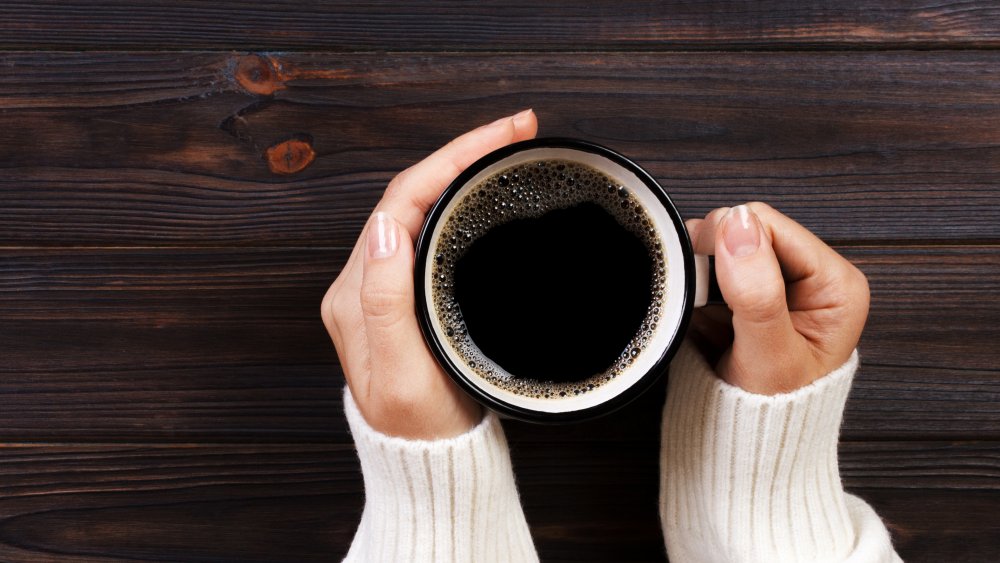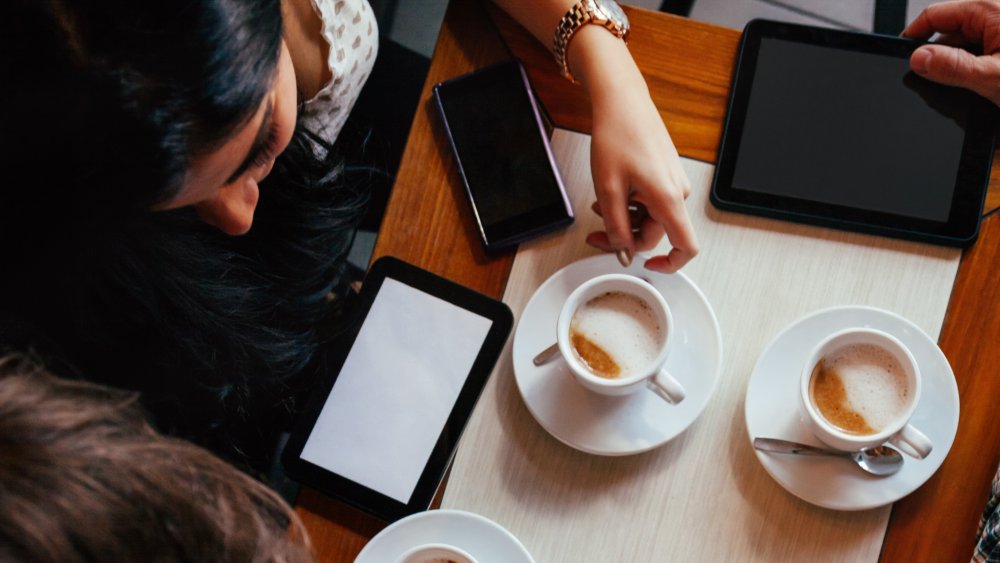The Real Reason Millennials Are Drinking So Much Decaf Coffee
There's nothing like an old cup of joe to wake you up on a lackluster morning. Whether you're an occasional coffee drinker or a hardcore enthusiast, you've probably comes across the hype around decaffeinated coffee, a type of coffee that has minimal amounts of caffeine compared to other types of coffee. Why does this matter? Too much caffeine can present a host of avoidable symptoms, such as nervousness, a racing heart, insomnia, and more — especially if you're sensitive to it or don't monitor your caffeine intake (via Perfect Daily Grind).
Decaf coffee offers a stealthy way out of this by allowing you to enjoy a hot, freshly brewed cup of coffee without any of its chemical stimulation, an option that might work for those who still want to sip without worrying about exposing themselves to any of the side-effects. According to a report by Grand View Research, Inc., estimates predict that the decaf coffee market will hit $2.8 billion by 2027.
So what's the deal with the popularity associated with decaf coffee? As explained by Perfect Daily Grind, many people, particularly young adults, prefer decaf coffee. Interestingly, research has also indicated that those who prefer to drink decaf coffee are comfortable paying extra for a good cup of coffee that doesn't compromise quality.
It's all about being healthier
A Reddit user explained why they felt the need to switch to decaf coffee for the sake of their health. "When I first started drinking coffee and tea, I enjoyed the buzz — isn't that one of the main reasons we all take the stuff? It's fun, it's a ritual, it's exciting to try new kinds of caffeine, to wake up to the smell of it. It's exciting," the poster wrote. They proceeded to describe how some of the side-effects from coffee led them to adopt a more mindful approach in order to be healthier. "If I'd started the day with coffee, then I'd make a tea. This often had a negative effect on my sleep. It was harder to get to sleep, and I'd also wake up more frequently in the night." They added that this was essentially a vicious cycle and things worsened until they made the switch to decaf.
What's the best approach? You could perhaps have one cup of regular morning after waking up and switch to decaf in the afternoon. As per Women's Health, even if you completely switch to decaf, you'll fortunately still be able to enjoy its antioxidant effects without worrying about symptoms like anxiety, sleeplessness, and irritability. Both types of coffee help lower your risk of being struck with ailments like type 2 diabetes, Parkinson's disease, breast cancer, and more. Clearly, millennials are on to something.

